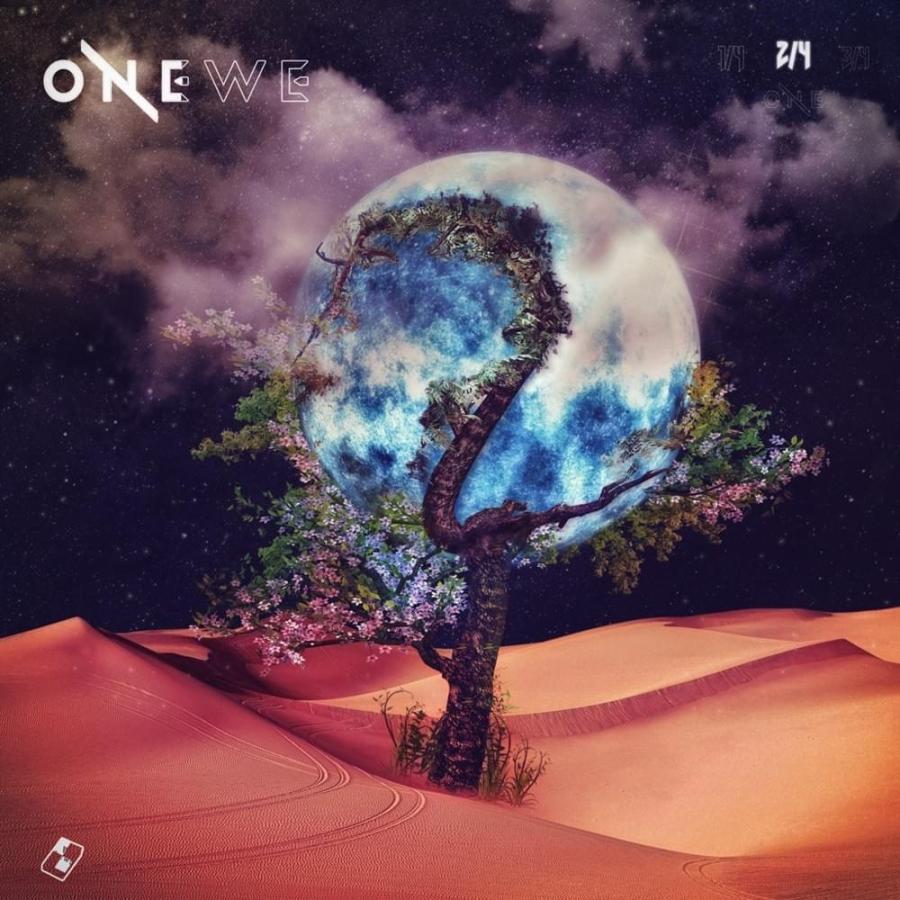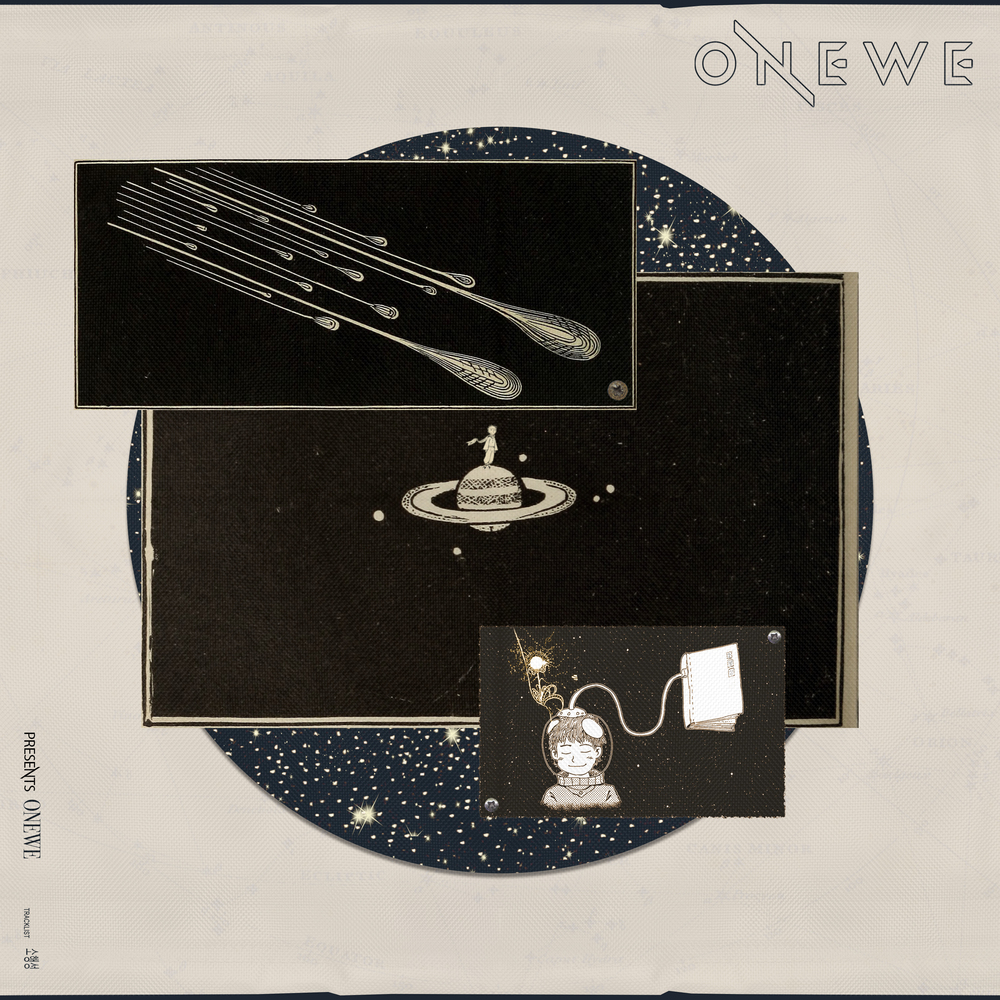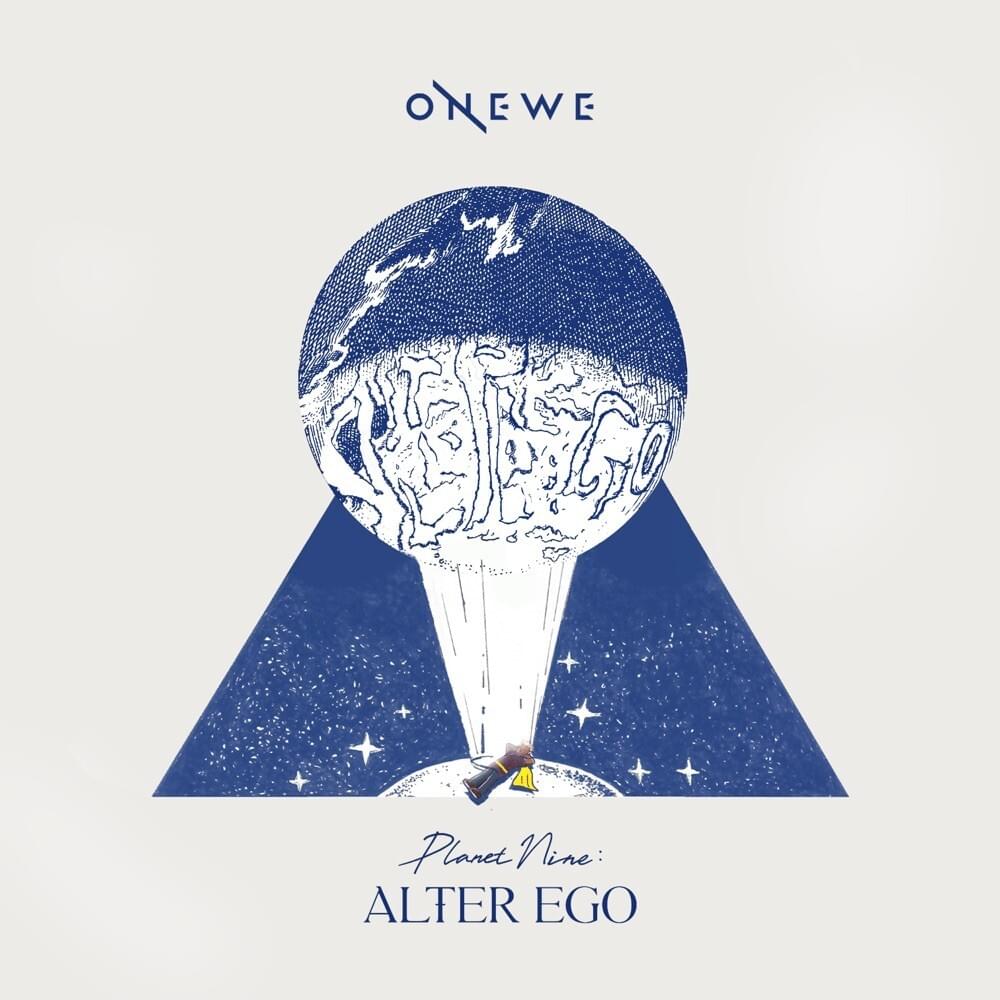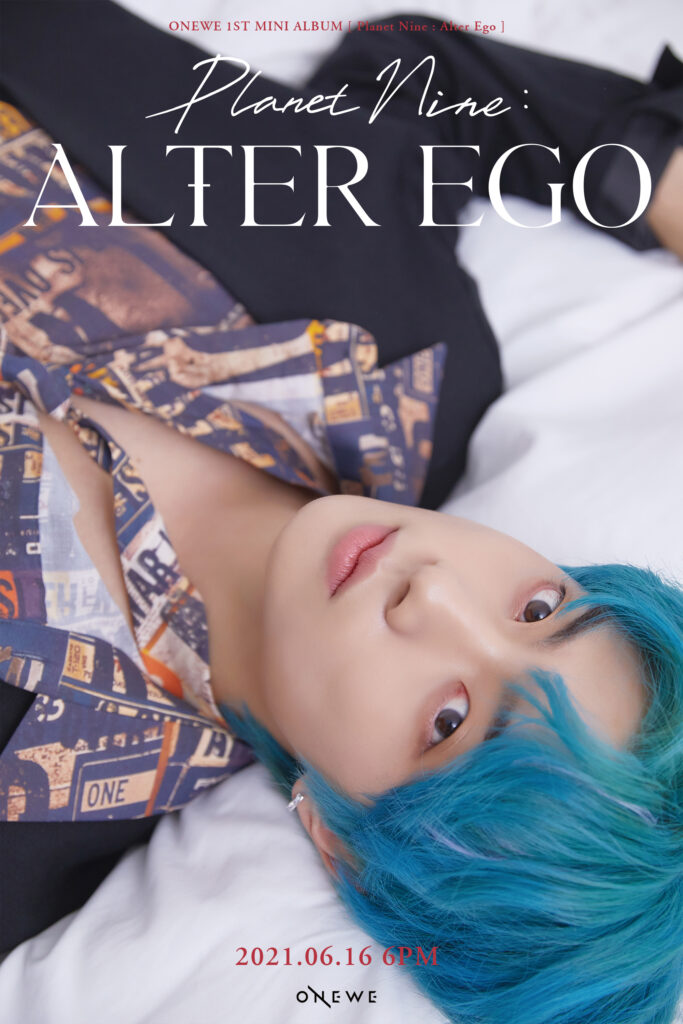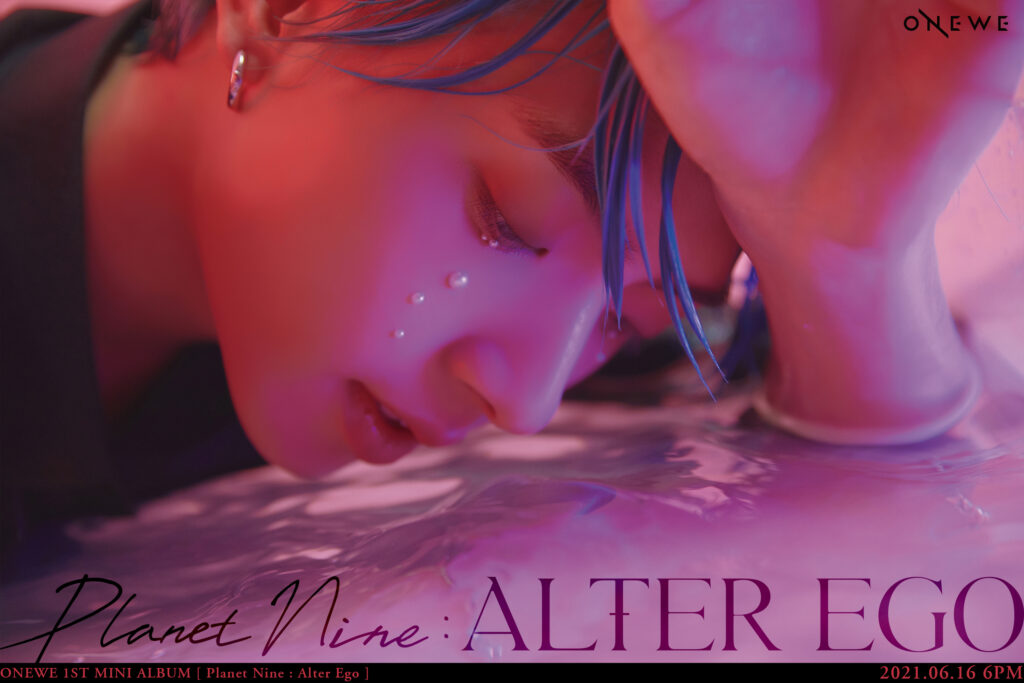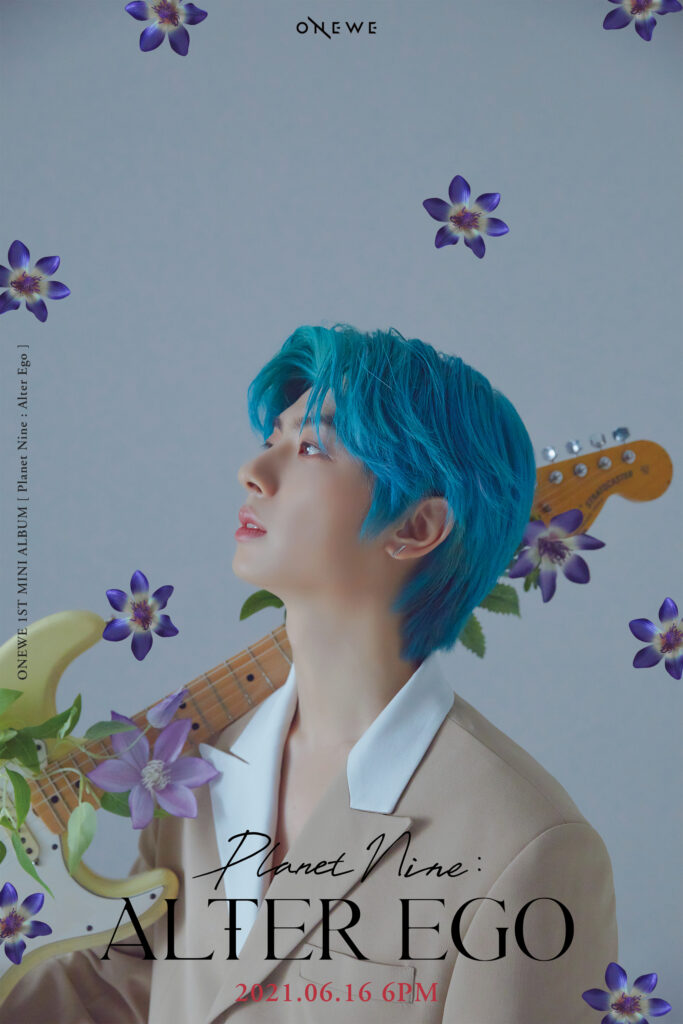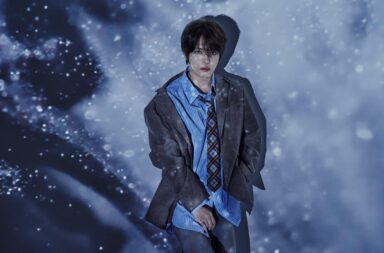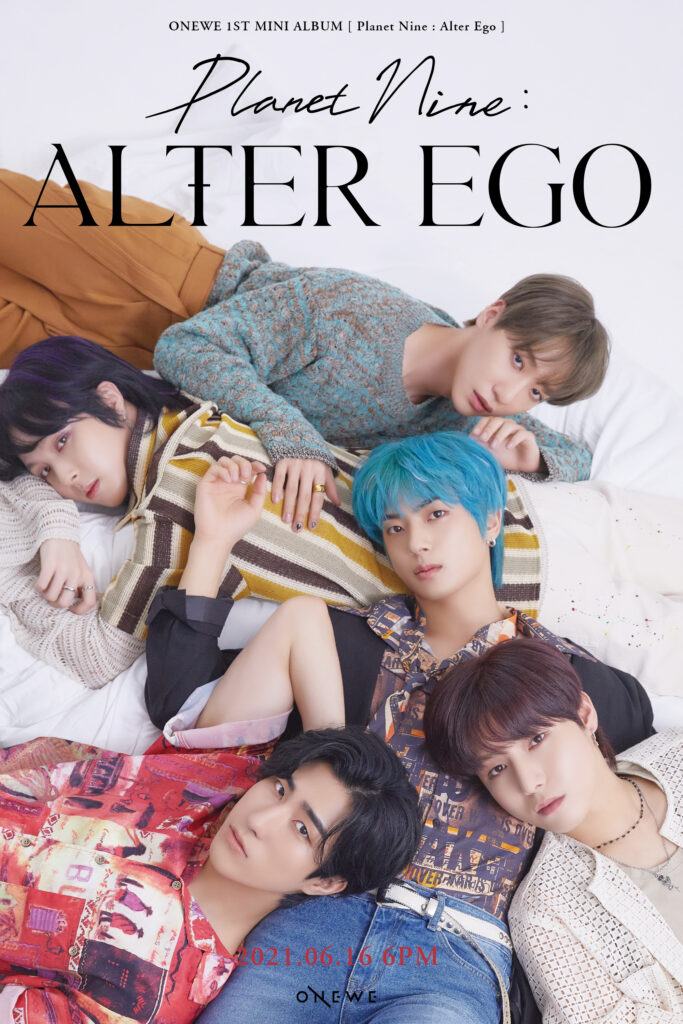
In 2019, Seoulbeats described Onewe as “stars in the making” following the release of “Regulus,” their most streamed song to date.
In the band’s first mini album Planet Nine: Alter Ego, they capture this cosmic concept and flesh it out in the seven tracks. The album depicts Onewe’s alter egos on the ninth planet of an undiscovered solar system, hence the title. With Planet Nine, the five members have created their own Onewe universe, embarking on a sophisticated exploration of their identity as Korean rock band adjacent to the K-pop scene.
As they experiment in their recent musical effort, their resonant lyricism remains a competitive advantage. The group is known for writing and composing the majority of their music, and all five of them took part in shaping Planet Nine. Through their way with words, Onewe created a cohesive narrative, weaving a grand journey into space founded upon the complex nuance of human emotion.
While their lyric writing and composing abilities are definitely seen in their (albeit small) official discography, their mind-blowing talent is casually on display in their Make a Sound series on their YouTube. Usually guitarist Kanghyun or youngest and bassist CyA sit in front of the camera, with the latter producing a track on the spot. CyA’s skill as a producer and a lyricist/rapper truly hits differently when you witness him making a song about a watermelon or even a diffuser.
This small exercise gives insight into Onewe and their musical inspiration. They are all about writing from life. It happened? Great, let’s make it into a song. In fact, the title track of Planet Nine, “Rain To Be,” was inspired by the group’s inside joke about how it always seems to rain when they go to work.
Their personal stories also emerge in “Trauma (Aquarium),” where CyA drew on his experience of almost drowning, while vocalist Yonghoon wrote about his first time petting a dog in “Love me,” a track released in 2019. In addition, from Planet Nine, CyA penned a song about his kindergarten crush, who was named Veronica.
Although the five members probably have not traveled to space, the same creative energy they bring to their songs inspired by their lives is poured into uncovering the emotional hearts of the stories they tell in Planet Nine.
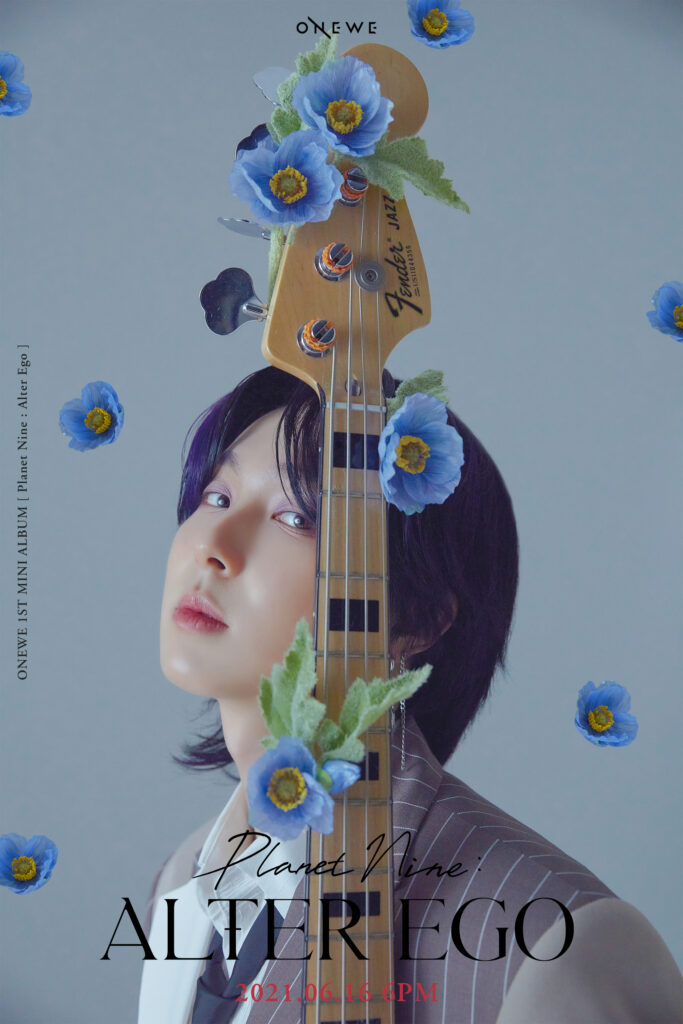
The album begins with “Intro: Spaceship,” the band’s first venture into a musical intro. The track is only a minute long, but it paints a vivid visual for listeners, as Onewe embarks on their journey. With no-fuss lyrics like “I put everything in the spaceship” and more romantic ones like “It came from a star that looks like one from your eyes,” the song is mostly dominated by CyA’s rap and Kanghyun’s electric guitar.
The rap strikes listeners as very CyA since his rapping style is quite distinct. The reverb around his voice juxtaposes with the sharp rhythm of the guitar. Kanghyun kicks in, and the autotune filter that was layered over CyA’s voice is sustained as the instrumentals take the stage.
The initial energy from “Intro: Spaceship” launches into Onewe’s title track, “Rain To Be,” or literally, “Boy Who Brings Rain.” The fast tempo has been mentioned frequently and for good reason. Backed by this rhythm, vocals soar, drums crash, and guitars shred, complete with a catchy hook that revitalizes the energy of “End of Spring” but without the country-rock “Timber” sound. “Rain To Be” is all Onewe.
Their story is at the root, whether it be through the lyrics or the instrumentals. The complicated guitar solo and Yonghoon’s explosive voice makes the song feel very grounded, which is amusing considering that the concept of the mini is, well, space. As mentioned before, Onewe was inspired by the rain they would encounter while working.
They take this and weave memories into the lyrics. One line ends with the speaker being “soaked with memories.” These moments then collide with the present and the future as they sing, “The days I meet you / Will always exist where it rains.”
“AuRoRa” also plays with searching and memories. This track was teased during their virtual concert, rounding out their “star” trilogy. This unofficial series consists of “Regulus,” “Parting,” and most recently, the bursting “AuRoRa.”
While “Regulus” is like listening to a knife slowly cutting out your heart, the mid-tempo “AuRoRa” is even more emotionally devastating. The addition of Yonghoon unleashing the full force of his powerful vocals as the drums crash behind the peak of the hook and Kangyun’s guitar solo, which hurtles the song into its final refrain, leaves listeners just short of stunned. Both “Parting” and “Regulus” have similar steady tempos that possess careful control of emotions, but “AuRoRa” feels like Onewe letting go—the song is a pure expression of their emotions.
Yet, this track opens softly. The guitar gently plucks the notes, delicate and intentional, before the song introduces the dynamic swing of Yonghoon’s voice. The soaring nature of “AuRoRa” also contrasts with the lyrics, confident statements woven between romantic images of the night sky and its stars.
Within your still lingering echo
I drag up hazy memories, come back to me
In time that is mine, gone fleetingly by
I’m going to find you, who shone brightly, soundlessly
Although they are searching for another person in this song, relying on memories and the guidance of the stars to do so, Onewe maintains a surprising certainty about the situation, singing, “I intend to remember you / before the darkened sky departs.” They even look to the future, continuing this story beyond the bounds of the lyrics: “In the aftermath of lingering feelings that left me wanting / I will write down the endings of stories not yet done.” This conviction matches perfectly with their musical assertion of the instrumentals and the intense delivery of these emotions.
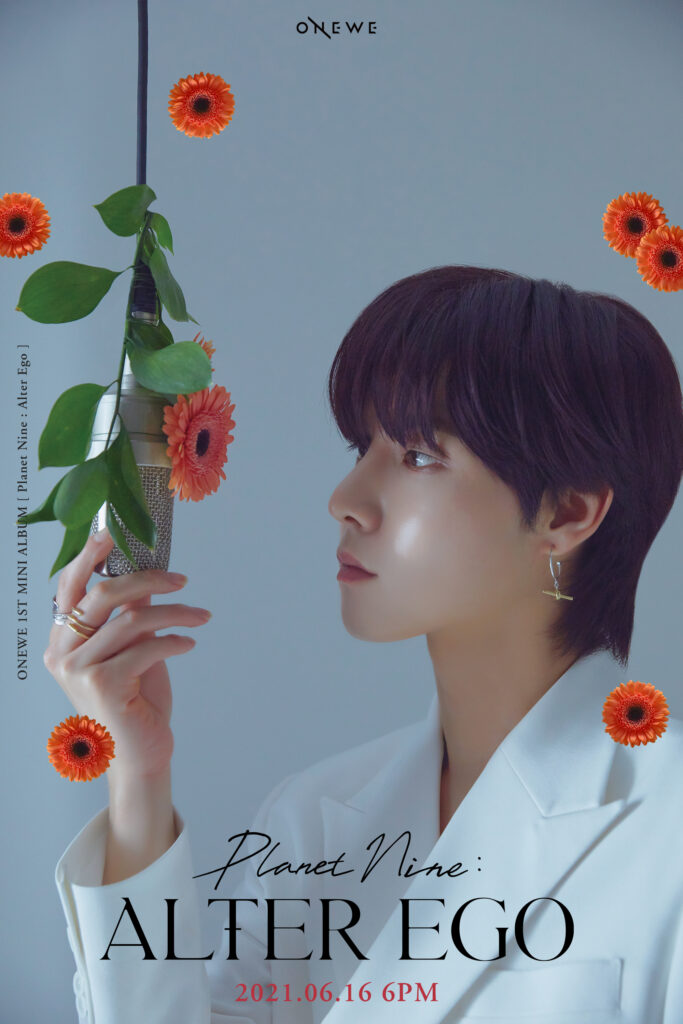
Considering “Logo” follows in the wake of the powerhouses “Rain To Be” and “AuRoRa,” the song, unfortunately, is quite unremarkable in comparison. It seems like it got the most lost musically, as the other six tracks have such distinct hooks and emotional climaxes. Perhaps “Logo” needs to ride under the radar as the middle of the EP. This track allows the album to breathe before jumping into the narrative heavy “A.I” and after coming off of the explosive energy of “AuRoRa.”
“Logo” features an empty chorus, except for the repetition of one line. However, the song does give space for listeners to appreciate Harin and his drumming skills, especially during the verses and pre-chorus. Despite the upbeat nature of “Logo,” the lyrics are no less impactful, as Onewe attempt to convince themselves with a similar force of conviction heard in “AuRoRa”:
In the many lights,
I can get me
I can see me
I will not disappear.
I will not disappear.
Onewe takes the route of “contrast makes the differences stronger” in “A.I,” its Korean title translating to “Robots also have human emotions.” The opening staccato hook of the guitar automatically sets a tone of lightheartedness and brightness, a facade of life masking the mechanical.
The fascinating instruments only add to the story they have written. As the title may indicate, the lyrics are from a robot’s perspective; yet, the words are brimming with human emotion and expression. This robot can “feel” and believes it has “no time to wither,” which is not possible because it can be repaired for the most part.
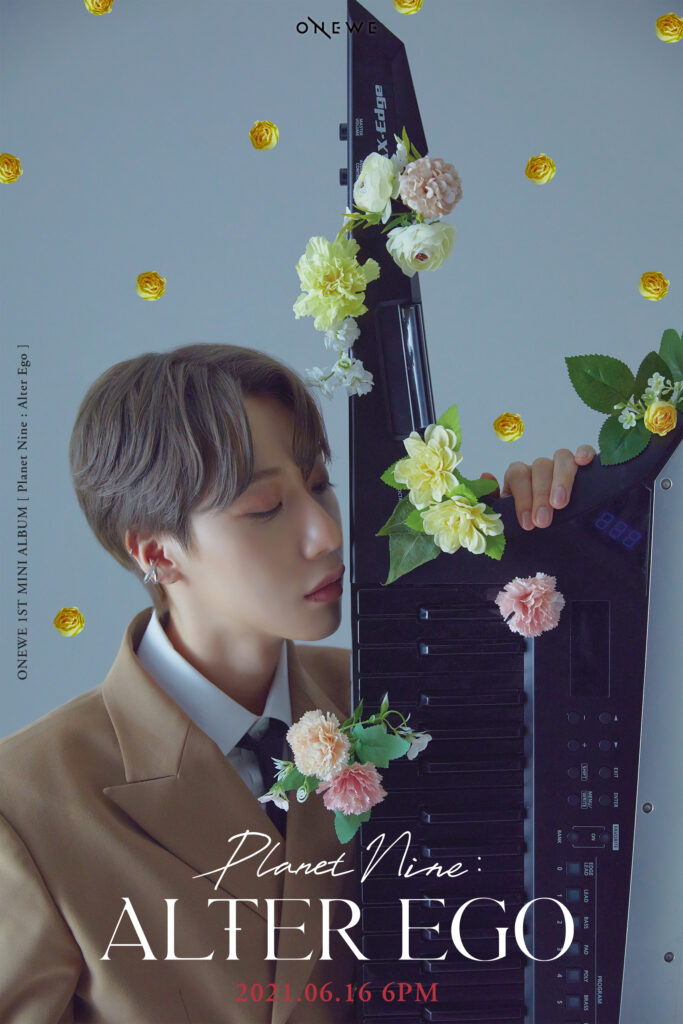
Above all, love is the center of this narrative. One of the lyrics goes, “only love me without reason,” but how can a robot love? How does a robot know what “love” is, and how does it understand that love can be given and received? Furthermore, this poor robot questions, “How do I explain my heart?” and asserts that it is a “robot that has feelings.” It even engages in typical small talk questions, including inquiries such as “how are you doing?” that do not always meet a genuine answer.
Amidst these poignant lines, the chorus is dominated by onomatopoeias—”ZK ZZ zig zag g dix beep beep”—closing the hook with a reminder that the narrator, at the end of the day, is a mechanical creation.
Dongmyeong has a larger part in “A.I.,” first with the stronger presence of the piano and then through his jazzy adlibs. There is a greater focus on CyA, who opens the track, and Dongmyeong, as opposed to Yonghoon’s voice, which is a welcome decision. While Yonghoon clearly has incredible vocal chops, Dongmyeong demonstrates the control he has over his voice and its light quality through this song.
Just as “Rain To Be” drew from Onewe’s experiences, “Veronica” continues this grounded-in-life inspiration. This song also maintains the tight narrative of “A.I.,” only the former takes a less emotionally devastating angle.
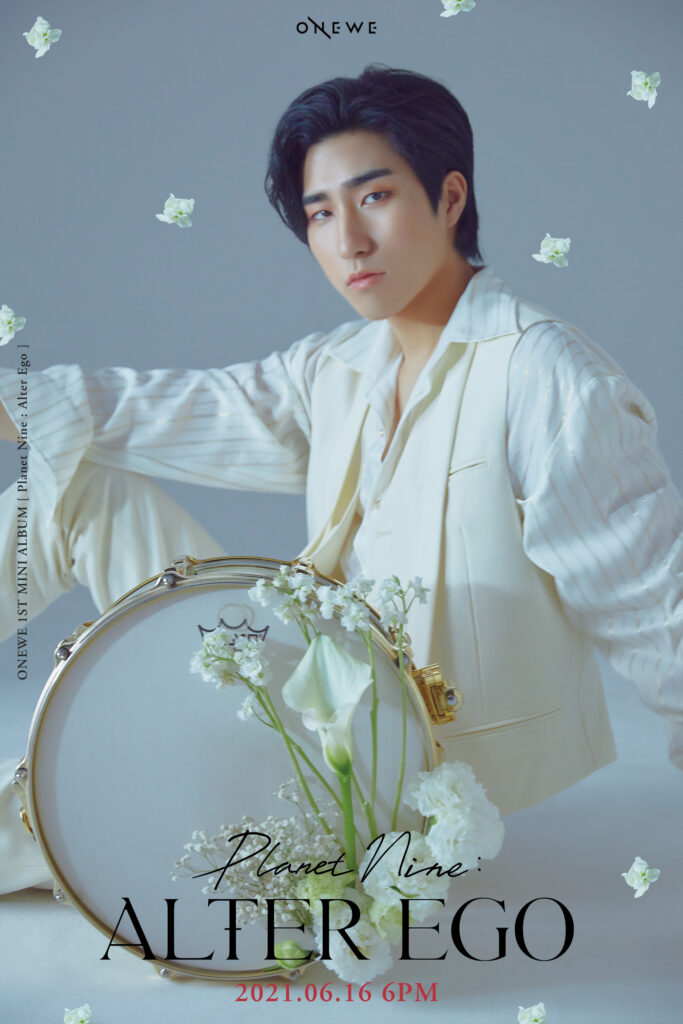
According to Onewe’s Planet Nine highlight medley, CyA wrote “Veronica” based on a kindergarten crush named—you guessed it—Veronica. True to this innocent story, the bright violin hook at the beginning of the track and its sharp rhythm adds a fresh bounciness.
Similar to “A.I.,” the chorus of “Veronica” is empty, but the guitar riffs and drum support with a flatter and shorter beat to carry the boundless energy to the last note. This exuberance is sparked as “Veronica” rolls of CyA’s tongue (“With the purest of hearts, it’s Veronica”) before dropping into the instrumental hook.
Even with this cute story, Onewe ties CyA’s childhood crush into broader images of the universe, the stars, and the journey of innocent love.
Where I string the stars, made of jade
I will give you everything, a masterpiece universe
Welcome, everyone,
To this island that contains our story
The concluding track of Planet Nine, “Cosmos,” goes back to Onewe’s rock ballad roots. Another song to add to their “star” series, “Cosmos” begins with an acoustic guitar and a slower rhythm. CyA on the bass, however, is a little more prominent here, giving the song a steadiness in an emotionally unsettling song.
The push-and-pull and reverb around these simple instruments caused me to picture the five members of Onewe standing on their found planet. Viewers only see their backs, but they look outwards to the endless amount of stars in front of them. Essentially, “Cosmos” feels like the shattering last song of a sad film, preferably about space.
The lyrics strengthen this clear picture of an ending scene:
That little dot that now you see
Millennia ago, that was a signal sent to you from me
A signal containing every secret
Of my dying, fading light
Complementing the softness of Yonghoon’s vocals and the legato notes, the traditional instruments used at the end of “Cosmos” maintains this delicate feeling while adding a new texture. The acoustic guitar, furthermore, provides a continuation of the early flavor of the track, and loops it back to the beginning.
In true Onewe fashion, they end “Cosmos” and their album softly but leave listeners emotionally wrecked:
I, who began from that small point,
Took my time, an astronomical amount,
Gathering things which had lost their place
Creating a universe which belonged to meWhen I go to draw a line along the dot
Among the countless unfolding constellations,
On the small flower I’d wish for,
I will gently pen the name ‘Cosmos’
Planet Nine is by far Onewe’s strongest work to date. Leaning into vivid imagery of stars, memories, and the cosmos, they create a conceptually coherent piece of work while preserving the emotional depth of their music. Their poignant lyrics and their unique storytelling, in addition, sets them apart in the Korean music scene, and we can only (im)patiently anticipate what they release next.
(YouTube: [1] [2]. Korea JoongAng Daily. Twitter: [1] [2], MyKpop, LyricsTranslate: [1] [2]. Lyrics via Genius, Images via RBW Entertainment.)
